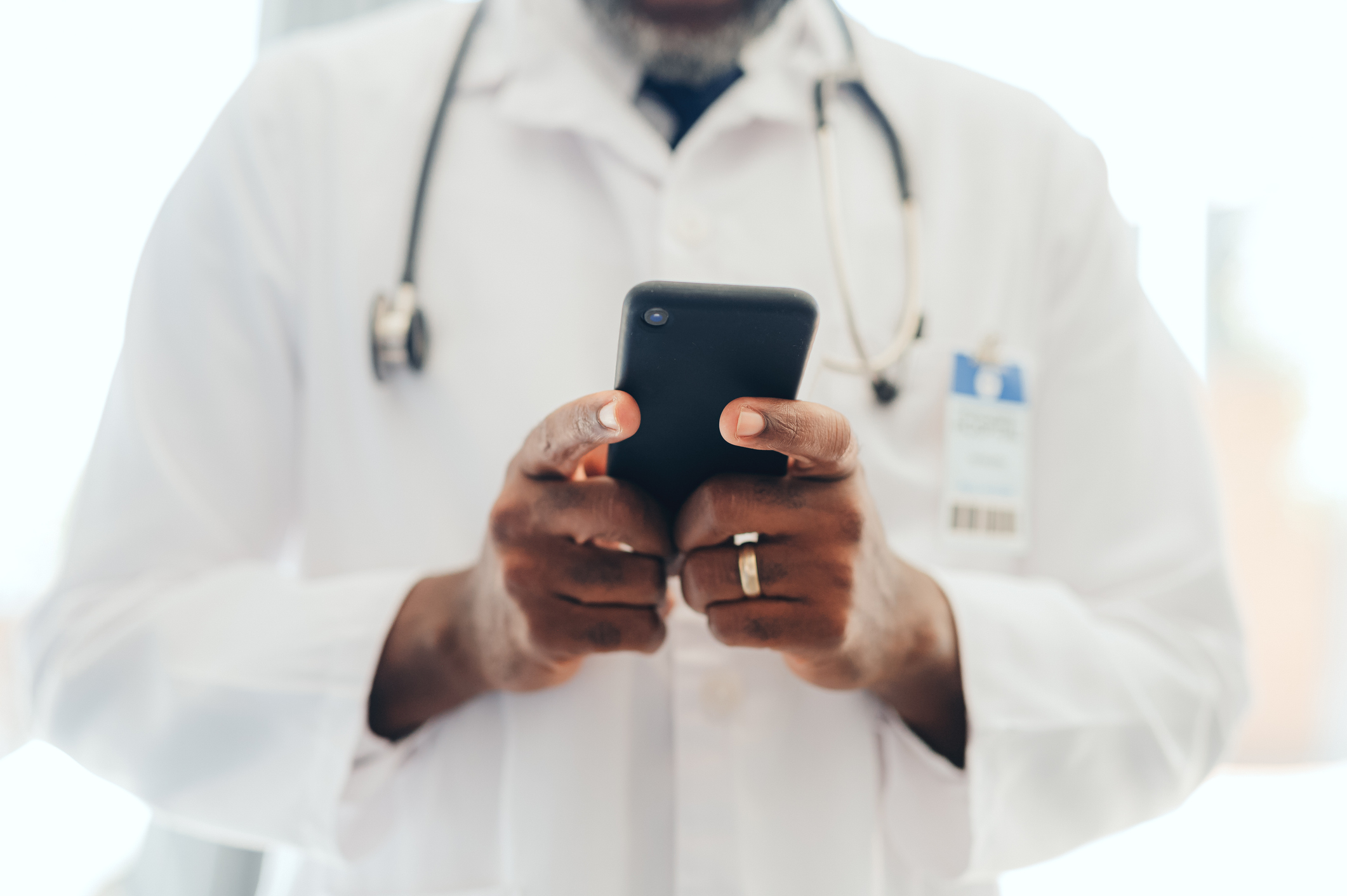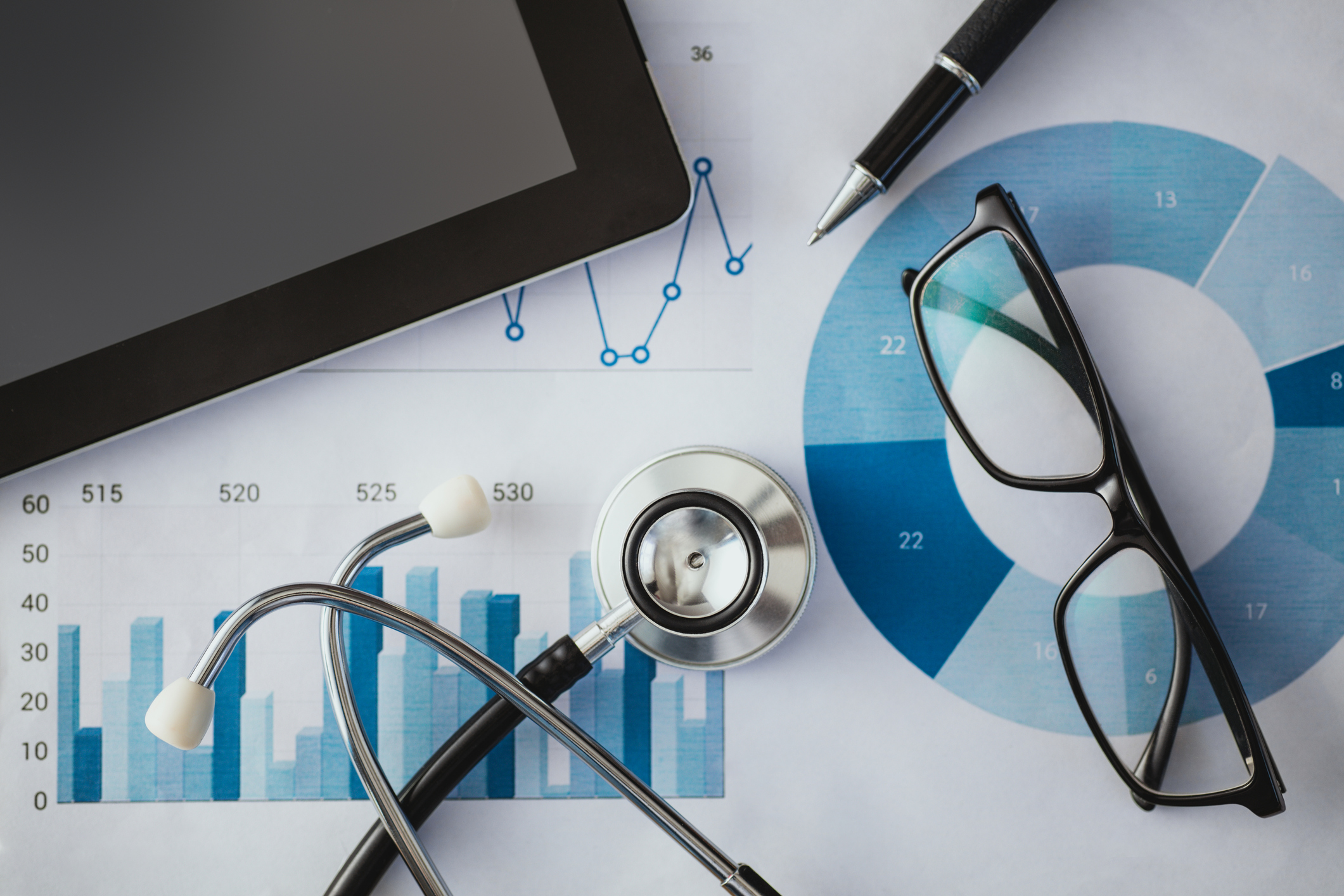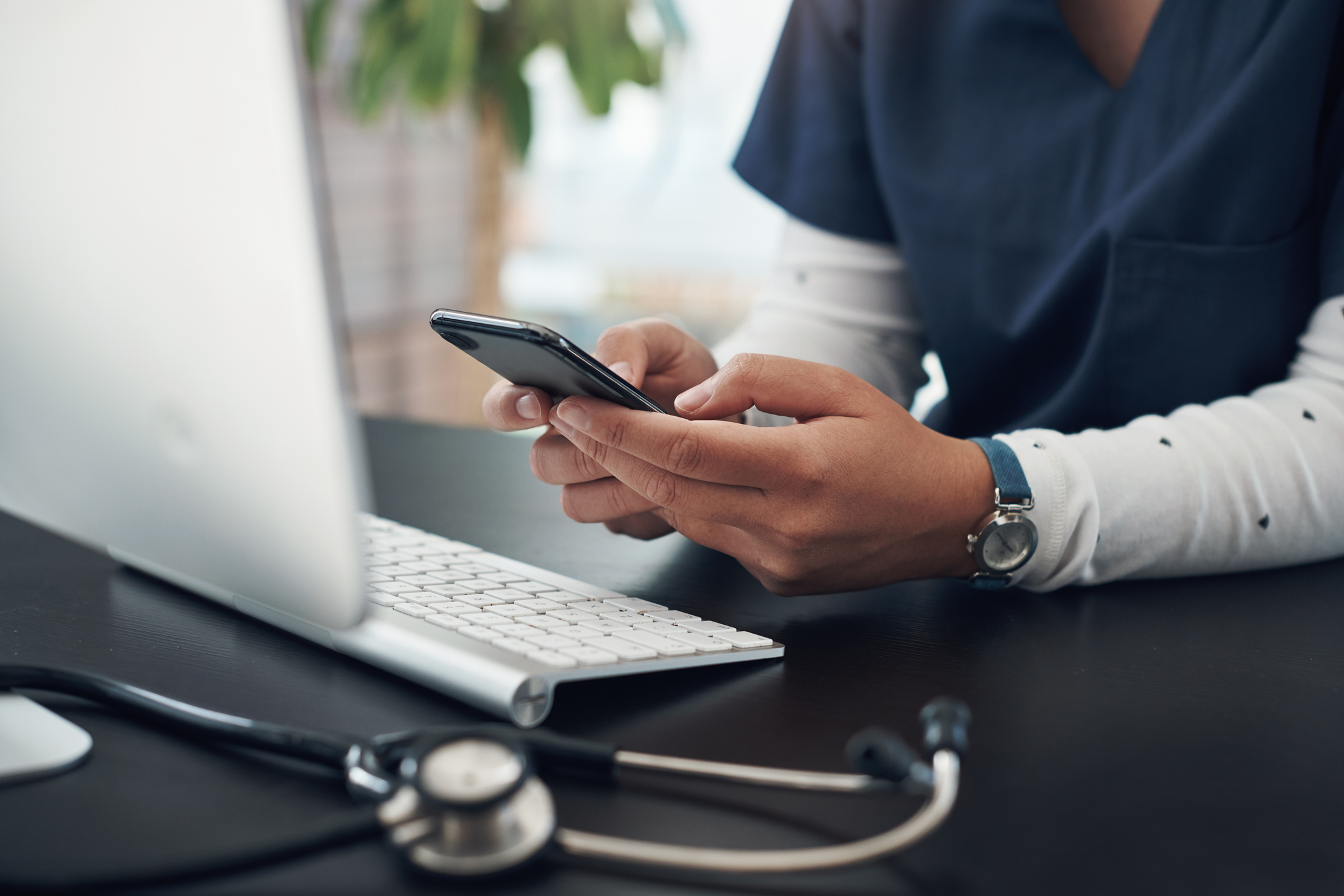How to Make Your Phone HIPAA-Compliant: Everything You Need to Know

Mobile phones play an essential role in modern healthcare communication, but most personal devices are not HIPAA compliant by default.
Healthcare compliance requires medical professionals to carefully manage sensitive data, such as Protected Health Information (PHI) which includes identifying information like name, address or social security number. As the use of personal devices for work-related tasks becomes increasingly prevalent, ensuring that your clinical team’s smartphones are compliant with standards such as HIPAA and PHIPA is critical to protect patient data and trust, and prevent any risks to the organization.
In this article, we’ll discuss the steps healthcare providers can take to ensure their phones are safe, secure, and compliant.
Why HIPAA Compliance Matters for Mobile Devices
Mobile devices have become indispensable tools in healthcare, with 87% of healthcare professionals using smartphones or tablets for work. However, this widespread adoption has also created significant security vulnerabilities that regulators are increasingly scrutinizing.
Mobile security risks
SMS texting can potentially violate HIPAA rules if it involves the transmission of protected health information (PHI) without proper safeguards. As a result, many healthcare organizations may unknowingly expose patient data through unencrypted messaging, screenshots, or unencrypted devices left unattended. Common breach vectors include text messages containing patient identifiers, photos or screenshots of medical records saved to cloud services, and lost or stolen phones without encryption.
There’s also the threat of SMS phishing, or smishing, which is a phishing attack specifically targeting mobile devices through SMS texting. Smishing accounted for 28% of phishing accounts in 2023, and incidents rose by 18% in 2024.
Healthcare compliance fines
The potential risks associated with mobile devices shouldn’t be overlooked as there are severe consequences involved, specifically around healthcare compliance.
In 2024, the Office for Civil Rights (OCR) confirmed that 22 HIPAA violation cases were closed and over $9.9 million in settlements and civil money penalties were collected.
HIPAA violations carry severe financial penalties. For 2025, penalties can reach up to $71,162 per violation, with annual caps potentially reaching over $2 million per organization.
Are Cell Phones HIPAA Compliant by Default?
The short answer: No. Smartphones aren’t HIPAA or healthcare compliant by default.
SMS messages and voice calls lack encryption, making them vulnerable to interception during transmission. Public Wi-Fi networks expose data to eavesdropping or unauthorized access without a VPN or secure connection. Default cloud backups such as iCloud, Google Drive, and OneDrive automatically store PHI outside your organization's secure infrastructure and control, resulting in compliance violations.
Mobile devices also carry inherent risk due to their portability. They can be lost or stolen, potentially exposing unencrypted patient data to unauthorized access. Additionally, standard smartphone apps provide no audit trails to demonstrate who accessed what information and when, no centrally controlled message retention policies, and no access controls to limit PHI visibility.
HIPAA's Security Rule requires electronic transmission and storage of PHI to comply with administrative, physical, and technical safeguards, which cannot be achieved through default settings alone. As a minimum, organizations must enforce encryption and provide clear mobile device usage policies to help maintain compliance.
Organizations can also implement additional security controls, including:
- Using HIPAA-compliant messaging apps
- Setting up Mobile Device Management (MDM) policies
- Disabling consumer cloud backups
How to Make Your Phone HIPAA Compliant (Step-by-Step Guide)
For clinical IT leaders, it’s critical to ensure every provider not only has a secure mobile device, but also follows security guidelines to ensure compliance.
Healthcare providers can follow this HIPAA compliance checklist for actionable steps to ensure all phones are secure and not violating any compliance regulations.
1. Use a Secure, HIPAA-Compliant Messaging App
While using a compliant messaging solution alone doesn’t make your phone healthcare-compliant by default, it’s the first step in making your clinical communications safer and more secure.
Replace standard messaging platforms like SMS, WhatsApp, or iMessage with a HIPAA-compliant messaging app such as Hypercare. Clinical communication apps are specifically designed for healthcare professionals and offer encryption that enables the safe sharing of patient data and the ability to coordinate in real-time.
To gauge if a messaging platform is HIPAA-compliant, confirm it includes essential compliance features, such as:
- Access controls that restrict who can view messages
- Encryption of all PHI stored or transmitted
- Detailed audit trails that log all communications
- Customizable message retention policies
These features ensure your organization maintains control over sensitive conversations and can demonstrate compliance during audits.
Action items: Install your organization's approved messaging app, delete unsecured messaging conversations containing PHI, and disable SMS notifications for sensitive communications that contain unencrypted PHI.
2. Enable Device Encryption
Ensure your device's data is encrypted at rest and use secure messaging apps that encrypt data during transmission. At rest refers to when the data is stored on the device, while in transit is when it’s being sent across networks. Modern smartphones typically offer built-in encryption, but providers must verify it's enabled in their device settings.
When your phone is encrypted, even if it's lost or stolen, the data remains inaccessible without the correct password or biometric authentication. This is critical for healthcare compliance as it ensures that patient information is protected at every stage, whether your phone is in your pocket or syncing with a server.
Action items: Check your phone's settings to confirm encryption is enabled, enable automatic lock after 5-10 minutes of inactivity, and ensure software updates are installed promptly.
3. Implement Strong Passwords and Authentication
Next, create a strong, unique passcode. The Cybersecurity and Infrastructure Security Agency (CISA) recommends using at least 16 characters combining letters, numbers, and symbols. Many devices also offer biometric options like Face ID or Touch ID.
It’s important not to use simple PINs, birthdays, or sequential numbers as these weak passwords are the most at risk of being hacked. Research from NordPass analyzed the most common passwords found in public data breaches and discovered that common phrases like “password” and “123456” are the weakest passwords.
Equally important is to avoid sharing your login credentials with colleagues or storing them in unsecured notes.
For additional security when handling sensitive patient data, consider implementing two-factor authentication (2FA) and Mobile Device Management (MDM) solutions. These add additional verification layers, ensuring that only authorized users can access patient data.
Action items: Update your passcode to meet security standards, enable facial or fingerprint recognition, activate 2FA for email and messaging apps, and never share your credentials.
4. Disable Commercial Cloud Backups for Sensitive Data
While cloud backups offer convenience, they can inadvertently expose PHI or store it in non-compliant ways. iCloud, for example, is not HIPAA-compliant. Other default cloud services such as Google Drive and OneDrive can provide the encryption and access controls required by HIPAA, but require additional configuration by the user. If your phone is automatically backing up to a consumer cloud service, it’s imperative that it’s properly secured otherwise patient data could be stored outside your organization's secure infrastructure, breaching healthcare compliance regulations.
Instead, clinical teams must work with the IT department to implement enterprise-managed backups or MDM-controlled backup solutions. These provide encryption, access controls, and compliance logging, ensuring that any backup data remains secure and auditable.
Action items: Disable automatic backups to consumer cloud services, use only organization-approved backup methods, and confirm your IT team has encrypted backup protocols in place.
5. Use Mobile Device Management (MDM) Policies
In case your phone is lost or stolen, make sure you have the ability to remotely wipe its data using mobile device management (MDM). MDM solutions allow the IT team to centrally manage device security across your organization. Through MDM, administrators can enforce encryption standards, require automatic lock settings, control app installations, and remotely wipe devices if they're lost or stolen.
MDM is especially critical for organizations with Bring Your Own Device (BYOD) policies. Employees using personal phones to access patient data must still comply with HIPAA requirements, and MDM ensures consistent security posture across personally owned and organization-issued devices.
Platforms like Hypercare offer built-in remote management options such as remote logout, which instantly logs the user out of specific or all devices in the event that an account is compromised. Additionally, all Hypercare data can be remotely wiped from mobile devices without the requirement of a third-party MDM.
Action items: Enroll your device in your organization's MDM system, allow IT to set security policies, confirm remote wipe capability is enabled, and review approved app lists.
6. Provide HIPAA Training for Mobile Device Use
Technology alone cannot ensure compliance. Your entire team must understand secure mobile practices. IT leaders should offer regular training that covers critical guidelines, as well as provide best practices and examples such as:
- Never share usernames and passwords
- Log out of applications that hold PHI when not actively being used
- Set passcodes, PIN, and biometric locks where possible
- Never screenshot or screen-record patient data
- Never access patient information on unsecured Wi-Fi networks
- Always lock your phone when stepping away
Effective training also includes recognizing phishing attempts and knowing how to report security incidents. This should be mandatory training for all staff who handle patient data.
Action items: Schedule at least annual training sessions, document attendance for compliance records, and create a clear policy on acceptable mobile device use.
7. Regularly Review and Audit Device Security
HIPAA's Security Rule requires ongoing risk assessment. To achieve this, establish a quarterly or biannual audit schedule to review device encryption settings, app permissions, compliance logs, and access controls. These audits help identify outdated software, unauthorized apps, or security gaps before they become vulnerabilities.
During audits, confirm that all devices remain enrolled in MDM, encryption is active, access logs show no suspicious activity, and staff are following security policies. Additionally, document your findings. Detailed documentation demonstrates to auditors that your organization maintains active oversight of mobile device security.
Action items: Schedule quarterly security reviews, audit device settings against compliance checklists, monitor access logs for unusual activity, and update security policies as threats evolve.
Common Mistakes That Lead to HIPAA Violations
Below are some common mistakes clinical teams can unknowingly make that can put your organization at risk of violating healthcare compliance. It’s important to establish mobile compliance guidelines to prevent these mistakes.
- Sending PHI via standard SMS: Text messages are unencrypted and easily intercepted by bad actors. Use HIPAA and healthcare compliant messaging apps instead of SMS, iMessage, or WhatsApp to ensure full compliance.
- Using public Wi-Fi without VPN: Unsecured networks in coffee shops, airports, or hospitals make it easy for hackers to intercept data in transit. If you must access patient information on public Wi-Fi, always use a Virtual Private Network (VPN) approved by your organization to encrypt your connection.
- Sharing logins among staff: Each team member should have their own device with unique login credentials, or use MDM solutions that create separate user profiles on shared devices.
- Not deactivating accounts after employee departure: Departing staff may intentionally or unintentionally access patient data after they leave. Implement an offboarding process that immediately deactivates login credentials, removes access from messaging apps and MDM systems, and remotely wipes any organization-issued devices.
- Taking screenshots or screen recordings of PHI: Screenshots create unencrypted copies of sensitive data on your phone, in cloud backups, or in shared folders. These files are difficult to track and delete. Train staff to avoid capturing patient information visually and instead, reference patient data directly from secure systems when necessary.
- Installing unauthorized apps: Third-party apps can often access a user’s contact list, location data, or stored credentials. Encourage staff to only install apps from your organization's approved list or official app stores. Use MDM to restrict app installations and regularly audit your device for unauthorized software.
What Are The Best HIPAA-Compliant Communication Apps?
One of the best ways to eliminate any doubt around the security of your clinical team’s mobile communications is by using a healthcare compliant messaging app. The best HIPAA-compliant messaging platforms are built for clinical settings and prioritize data security, encryption, and regulatory adherence.
Hypercare, for instance, is a unified clinical communication platform that offers enterprise features for clinical teams including secure messaging, code activations, and scheduling in one place. The mobile-first solution is HIPAA and PHIPA compliant as it provides end-to-end encryption, audit trails, and controlled access.
Hypercare offers an intuitive interface and integrates securely with hospital directories, EHRs, and scheduling tools, making it easy for clinicians to use it within their existing workflows. Using a unified and compliant platform helps improve clinical communication which can lead to faster response times, reduced medical errors, and more coordinated care.
Key Takeaways
For modern healthcare providers, smartphones are a powerful tool that can significantly enhance productivity and patient care. However, most phones are not suitable for compliant communications without proper safeguards.
Ensuring your team’s mobile devices are healthcare compliant is essential to protect patient information and prevent security risks. By following these guidelines and using secure communication tools like Hypercare's clinical messaging app, organizations can confidently balance mobility, security, and patient care, while remaining healthcare compliant. Book a demo to learn how Hypercare helps healthcare organizations enable secure, HIPAA-compliant communication.
Read more of our posts

Jan 22, 2026 • 4 min read
Why Every Second Matters in Hospital Emergency Code Activations
In cardiac arrest, stroke, trauma, and other emergency scenarios, every second directly affects survival. Yet most hospitals lose critical time to outdated, manual code activation workflows – and worse, don’t realize it. Despite this, many hospitals continue to rely on fragmented communication systems that introduce hidden delays at every step of the emergency response chain. This article explores why time-critical care demands clear processes, where hospitals commonly lose precious seconds, and how to eliminate these delays through better code activation workflows and technology.

Jan 21, 2026 • 5 min read
How to Track and Improve Emergency Response Performance in Hospitals
Legacy systems like switchboards and pagers create blind spots that make accurate measurement challenging. Without reliable data, teams can’t identify bottlenecks, recognize patterns, or implement meaningful improvements. While tracking these metrics has historically been difficult, modernizing code activation workflows offers the fastest, most effective path to measurable improvement. In this article, we’ll discuss the key metrics hospitals must track, why tracking emergency response times matters, and how to improve emergency response performance at your hospital.

Jan 20, 2026 • 3 min read
Best 10 HIPAA-Compliant Messaging Apps for Healthcare Organizations (2026 Guide)
This guide provides an in-depth comparison of the leading HIPAA-compliant messaging platforms, evaluating each solution based on usability, security features, and clinical relevance. We've assessed everything from comprehensive clinical communication solutions to modern mobile-first platforms, examining how each handles the unique demands of healthcare communication including on-call scheduling, emergency alerting, and seamless EHR integration. Whether you're a small clinic seeking straightforward secure messaging or a large health system requiring comprehensive communication infrastructure, this will help you identify the platform that best meets your organization's needs while ensuring full regulatory compliance and optimal clinical outcomes.
Ready to learn more?
Get an in-depth product tour to see what Hypercare can do for your team
Hypercare helps hundreds of clinical teams and healthcare organizations across North America coordinate and collaborate seamlessly, with one single clinical communication platform. Let us show you how we can help.
